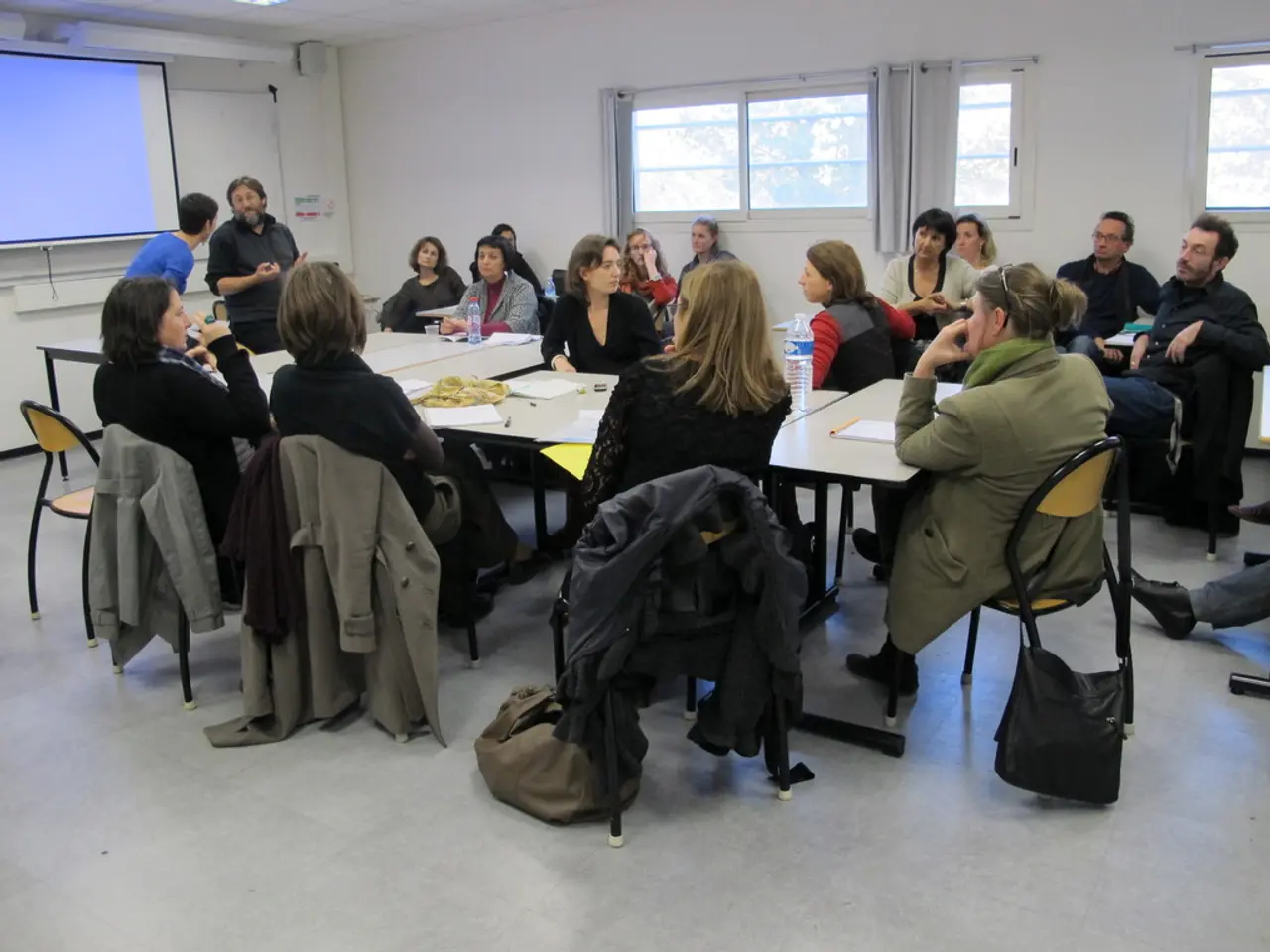Cross-cultural conflict resolution education: Is collaboration sufficient?
In the realm of conflict resolution, a call for change is echoing. Critics, such as peacebuilder and scholar John Paul Lederach, have highlighted the shortcomings of overly prescriptive and Western-centric approaches to conflict resolution education [1]. To address these concerns, a more adaptive, hybrid strategy is gaining traction, balancing the efficiency of prescriptive methods with the collaboration and cultural sensitivity emphasized in elicitive approaches.
This hybrid approach, recommended by various experts, seeks to respect local cultural values and practices while retaining some structured guidance to save time and resources, particularly in the initial stages [1]. Key components of this strategy include self-awareness and bias recognition, deep respect for local culture, collaborative epistemological mapping, diagnostic tools, fostering cultural intelligence, clear communication, and emotional intelligence [1][3][5].
Educators or mediators must consciously set aside their cultural biases and personal histories to avoid clouding the resolution process, ensuring neutrality and trustworthiness [1]. Showing genuine respect for a community’s values, knowledge, and practices fosters trust and long-lasting relationships with local leaders and stakeholders, which is essential for successful conflict resolution [1].
Co-creating intercultural frameworks through stakeholder collaboration helps integrate indigenous and traditional conflict resolution approaches with contemporary methods [3]. Utilizing diagnostic tools like apps developed by researchers can help trainers decide whether to emphasize prescriptive, elicitive, or hybrid methods based on the situation [1]. Developing deep cultural understanding and empathy enables mediators and team leaders to adjust communication and behaviors appropriately, improving conflict resolution outcomes [5].
Effective implementation of this combined approach requires ongoing relationship-building, adaptability to shifting social contexts, and co-design with local knowledge holders to ensure solutions are culturally sensitive, sustainable, and responsive to community needs [1][3]. This process also benefits from continual tracking and renegotiation of agreements to maintain trust and compliance [3].
To aid in this transformation, a free app for Android and Apple devices has been developed, organized around five diagnostic questions [2]. Furthermore, a special report titled "The New Conflict Management: Effective Conflict Resolution Strategies to Avoid Litigation" is offered for free [2]. Expert mediation trainers also offer advice on balancing prescriptive and elicitive approaches in cross-cultural conflict resolution education [4].
A recent article in the Negotiation Journal supports this combined approach for conflict resolution education in diverse cultures, advocating for a departure from the one-size-fits-all approach that has proven unsuccessful in the long term due to cultural insensitivity and advocacy for dependency [1]. Embracing a hybrid, adaptive strategy offers a promising path forward for effective and culturally sensitive conflict resolution.
- In the field of conflict resolution, a hybrid strategy that balances prescriptive methods with elicitive approaches is gaining popularity, as it resonates with local cultural values while providing structured guidance.
- This strategy, advocated by various experts, incorporates components such as self-awareness, cultural sensitivity, collaborative epistemological mapping, and communication skills.
- To implement this approach effectively, educators and mediators must consciously set aside cultural biases and personal histories, showing genuine respect for local values and practices to build trust.
- Encouraging co-creation of intercultural frameworks through stakeholder collaboration allows for the integration of indigenous and traditional methods with contemporary approaches, leading to culturally sensitive and sustainable solutions.
- Utilizing diagnostic tools and ongoing relationship-building, as well as seeking advice from expert mediation trainers, can aid in the transformation towards an effective, adaptive, and culturally sensitive approach to conflict resolution.




